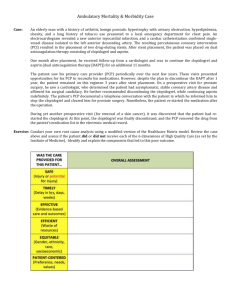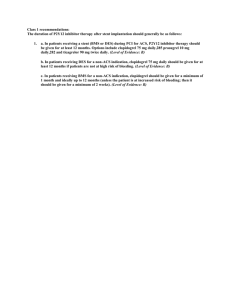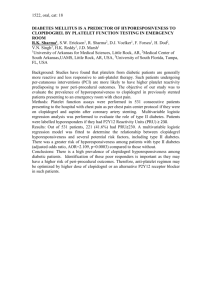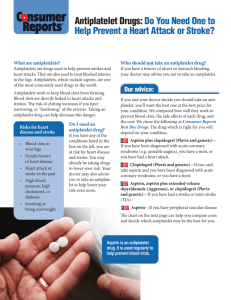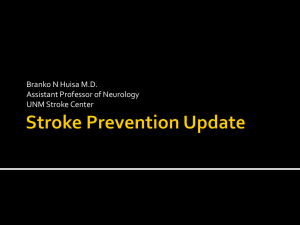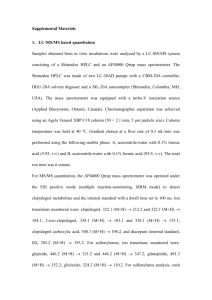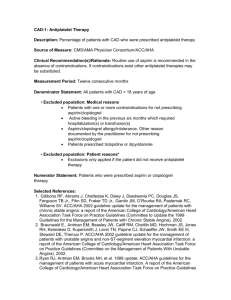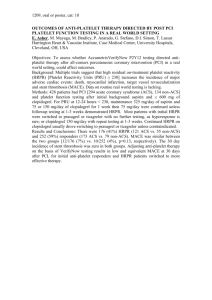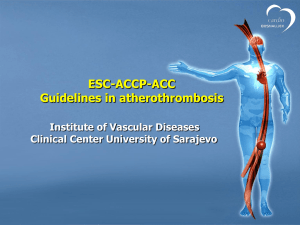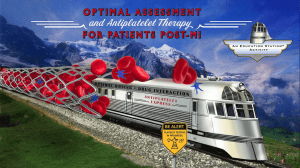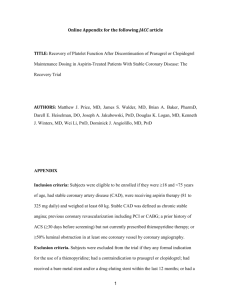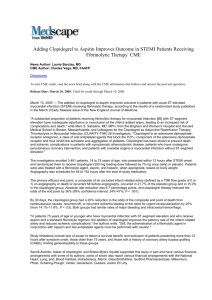Clopidogrel for TIA - January 2015 APC Statement
advertisement
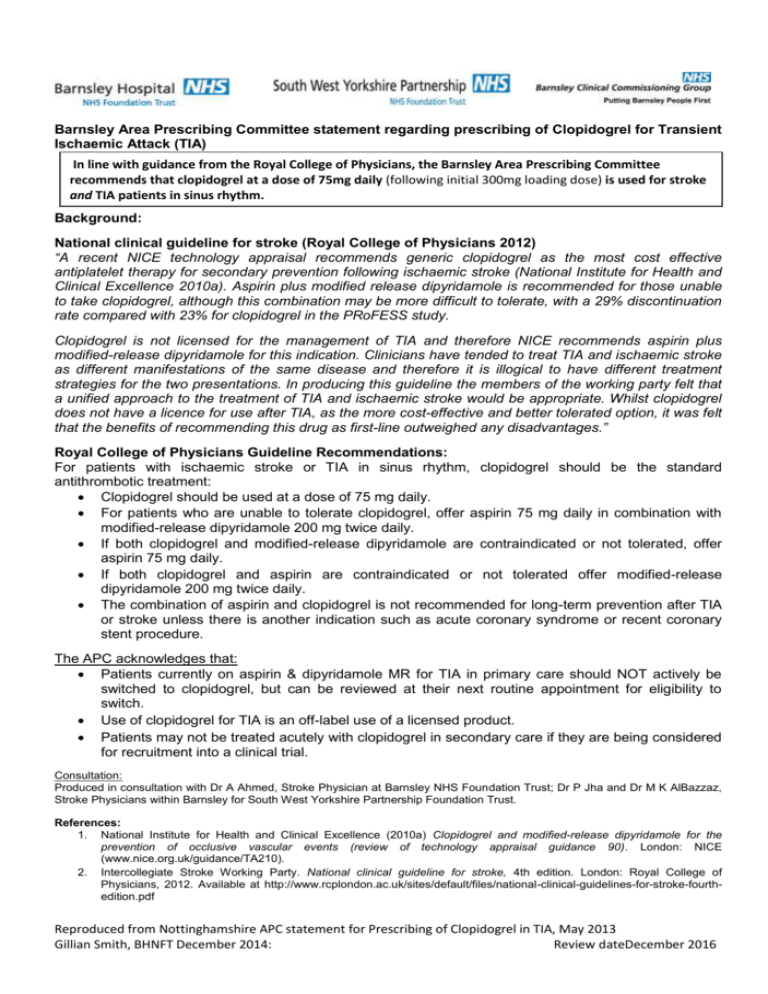
Barnsley Area Prescribing Committee statement regarding prescribing of Clopidogrel for Transient Ischaemic Attack (TIA) In line with guidance from the Royal College of Physicians, the Barnsley Area Prescribing Committee recommends that clopidogrel at a dose of 75mg daily (following initial 300mg loading dose) is used for stroke and TIA patients in sinus rhythm. Background: National clinical guideline for stroke (Royal College of Physicians 2012) “A recent NICE technology appraisal recommends generic clopidogrel as the most cost effective antiplatelet therapy for secondary prevention following ischaemic stroke (National Institute for Health and Clinical Excellence 2010a). Aspirin plus modified release dipyridamole is recommended for those unable to take clopidogrel, although this combination may be more difficult to tolerate, with a 29% discontinuation rate compared with 23% for clopidogrel in the PRoFESS study. Clopidogrel is not licensed for the management of TIA and therefore NICE recommends aspirin plus modified-release dipyridamole for this indication. Clinicians have tended to treat TIA and ischaemic stroke as different manifestations of the same disease and therefore it is illogical to have different treatment strategies for the two presentations. In producing this guideline the members of the working party felt that a unified approach to the treatment of TIA and ischaemic stroke would be appropriate. Whilst clopidogrel does not have a licence for use after TIA, as the more cost-effective and better tolerated option, it was felt that the benefits of recommending this drug as first-line outweighed any disadvantages.” Royal College of Physicians Guideline Recommendations: For patients with ischaemic stroke or TIA in sinus rhythm, clopidogrel should be the standard antithrombotic treatment: Clopidogrel should be used at a dose of 75 mg daily. For patients who are unable to tolerate clopidogrel, offer aspirin 75 mg daily in combination with modified-release dipyridamole 200 mg twice daily. If both clopidogrel and modified-release dipyridamole are contraindicated or not tolerated, offer aspirin 75 mg daily. If both clopidogrel and aspirin are contraindicated or not tolerated offer modified-release dipyridamole 200 mg twice daily. The combination of aspirin and clopidogrel is not recommended for long-term prevention after TIA or stroke unless there is another indication such as acute coronary syndrome or recent coronary stent procedure. The APC acknowledges that: Patients currently on aspirin & dipyridamole MR for TIA in primary care should NOT actively be switched to clopidogrel, but can be reviewed at their next routine appointment for eligibility to switch. Use of clopidogrel for TIA is an off-label use of a licensed product. Patients may not be treated acutely with clopidogrel in secondary care if they are being considered for recruitment into a clinical trial. Consultation: Produced in consultation with Dr A Ahmed, Stroke Physician at Barnsley NHS Foundation Trust; Dr P Jha and Dr M K AlBazzaz, Stroke Physicians within Barnsley for South West Yorkshire Partnership Foundation Trust. References: 1. National Institute for Health and Clinical Excellence (2010a) Clopidogrel and modified-release dipyridamole for the prevention of occlusive vascular events (review of technology appraisal guidance 90). London: NICE (www.nice.org.uk/guidance/TA210). 2. Intercollegiate Stroke Working Party. National clinical guideline for stroke, 4th edition. London: Royal College of Physicians, 2012. Available at http://www.rcplondon.ac.uk/sites/default/files/national-clinical-guidelines-for-stroke-fourthedition.pdf Reproduced from Nottinghamshire APC statement for Prescribing of Clopidogrel in TIA, May 2013 Gillian Smith, BHNFT December 2014: Review dateDecember 2016
